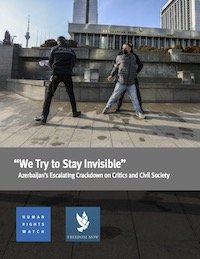By Harvard Immigration and Refugee Clinical Program
The United States maintains the world’s largest immigration detention system, detaining tens of thousands of people in a network of facilities, including those managed by private prison corporations, county jails, U.S. Immigration and Customs Enforcement (ICE), U.S. Customs and Border Protection (CBP), and the Office of Refugee Resettlement (ORR). At the time of writing, ICE is detaining over 35,000 people, including long-term residents of the United States, people seeking asylum, and survivors of trafficking or torture. Instead of finding refuge, these people are held in ICE custody for extended periods, enduring inhuman conditions such as solitary confinement (dubbed “segregation” by ICE), where they are isolated in small cells with minimal contact with others for days, weeks, or even years. In many instances, such conditions would meet the definition of torture, or cruel, inhuman, or degrading treatment under international human rights law. Solitary confinement causes a range of adverse health effects, including post-traumatic stress disorder (PTSD), self-harm, and suicide risks. Prolonged confinement can lead to lasting brain damage, hallucinations, confusion, disrupted sleep, and reduced cognitive function. These effects persist beyond the confinement period, often resulting in enduring psychological and physical disabilities, especially for people with preexisting medical and mental health conditions or other vulnerabilities. In recognition of this well-documented harm, ICE issued a directive in 2013 to limit the use of solitary confinement in its facilities, especially for people with vulnerabilities. A 2015 memorandum further protected transgender people, emphasizing solitary confinement as a last resort. In 2022, ICE reinforced reporting requirements for people with mental health conditions in solitary confinement, highlighting the need for strict oversight. Despite these directives, however, government audits and whistleblowers alike have repeatedly revealed stark failures in oversight. This report – a joint effort by Physicians for Human Rights (PHR), Harvard Law School’s Immigration and Refugee Clinical Program (HIRCP), and researchers at Harvard Medical School (HMS) – provides a detailed overview of how solitary confinement is being used by ICE across detention facilities in the United States, and its failure to adhere to its own policies, guidance, and directives. It is based on a comprehensive examination of data gathered from ICE and other agencies, including through Freedom of Information Act (FOIA) requests, first filed in 2017, and partly acquired after subsequent litigation. It is further enriched by interviews with 26 people who were formerly held in immigration facilities and experienced solitary confinement over the last 10 years. Executive Summary The study reveals that immigration detention facilities fail to comply with ICE guidelines and directives regarding solitary confinement. Despite significant documented issues, including whistleblower alarms and supposed monitoring and oversight measures, there has been negligible progress. The report highlights a significant discrepancy between the 2020 campaign promise of U.S. President Joseph Biden to end solitary confinement and the ongoing practices observed in ICE detention. Over the last decade, the use of solitary confinement has persisted, and worse, the recent trend under the current administration reflects an increase in frequency and duration. Data from solitary confinement use in 2023 – though likely an underestimation as this report explains – demonstrates a marked increase in the instances of solitary confinement. This report exposes a continuing trend of ICE using solitary confinement for punitive purposes rather than as a last resort – in violation of its own directives. Many of the people interviewed were placed in solitary confinement for minor disciplinary infractions or as a form of retaliation for participating in hunger strikes or for submitting complaints. Many reported inadequate access to medical care, including mental health care, during their solitary confinement, which they said led to the exacerbation of existing conditions or the development of new ones, including symptoms consistent with depression, anxiety, and PTSD. The conditions in solitary confinement were described as dehumanizing, with people experiencing harsh living conditions, limited access to communication and recreation, and verbal abuse or harassment from facility staff. etc.....
New York: Physicians for Human Rights, 2024. 50p.





















